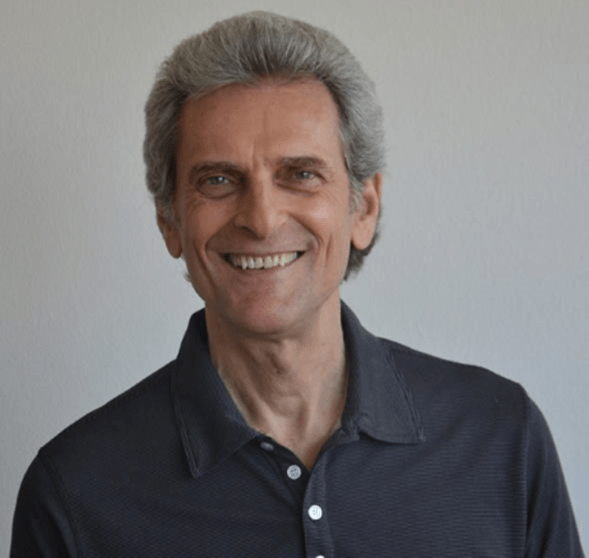Contemporary Reichian Analysis: Evolutive Stage, Epigenetics, and the Neuromediator Dynamic Written by Genovino Ferri and Edited by Nancy Eichhorn I recently had the pleasure of editing a fascinating article […]
Read MoreMy Mentoring
I support writers in improving their craft through a process I call Relational Embodied Mentoring. Together we co-create a publishable body of knowledge. My goal is to empower you. Even if you haven’t written a word yet, you can discover the right path that helps you stay on the course.
Developmental Editing
Developmental editing is an in-depth review of your writing. A thorough edit improves your text’s readability, clarity, and tone making it compelling, cohesive, and understandable. I look at correctness, clarity, conciseness, and consistency.
Write To Be Workshops
These writing workshops are tailored to your group’s needs. Outcomes range from creating supportive writing groups to exploring writing as a medium for inner healing, working together on a group anthology, and more.
Somatic Psychotherapy Today
SPT Magazine offered writers and readers the space to connect, to share thoughts, ideas, and opinions about what matters in the work we were doing to further our field of study and practice.
For a New Beginning
- John O’Donohue
About Me
Nancy Eichhorn
A writing mentor
I am a writer, editor, and credentialed educator with advanced degrees in Education, English, and Clinical Psychology, specializing in somatic psychology. I work with individuals and groups, integrating embodied writing, narrative therapy, somatic psychology, body psychotherapy, body-mind practices, mindfulness meditation, and sound therapy.
My current projects include mentoring professionals in scholarly/academic and memoir writing, publishing Somatic Psychotherapy Today, facilitating writing workshops (scholarly and creative nonfiction), ghostwriting, editing, and working with students in private sessions. My specialties include writing, editing, and supporting clients as they explore their somatic and affective experiences and learn how to give voice to their embodied expression through gesture, posture, mobility, breath, sound, drawing, printed text, and dialogue.
"You can always edit a bad page. You can't edit a blank page."
Jodi Picoult
Five Steps to Your Success

Contact me
Discuss your needs


Play on a blank page
Revisit your text

Publication steps
Are you ready to take the first step?
Email me today to schedule your free consultation
Current Articles
Polyvagal Prompts: Finding Connection and Joy Through Guided Explorations
Written by Deb Dana, LCSW and Courtenay Rolfe, LCPC Reviewed by Nancy Eichhorn, PhD “The autonomic nervous system is at the heart of our lived experience.” (Dana & Rolfe, 2024, […]
Read MoreThe Mindfulness and Character Strengths Workbook
The Mindfulness and Character Strengths Workbook Authored By Ryan M. Niemiec, Psy.D. Reviewed by Nancy Eichhorn, PhD I reviewed Ryan Niemiec’s textbook, Character Strengths Interventions: A Field Guide for Practitioners, […]
Read MoreTuning in to Gravity
Gravity matters. Not simply to keep us physically grounded here on Earth, but, at a fundamental level, our relationship with gravity affects our lives from start to finish. We start […]
Read More
Contemporary Reichian Analysis
Contemporary Reichian Analysis: Evolutive Stage, Epigenetics, and the Neuromediator Dynamic Written by Genovino Ferri and Edited by Nancy Eichhorn I recently had the pleasure of editing a fascinating article by Genovino Ferri for Somatic Psychotherapy Today. His work stretches my perspectives in new directions, inviting me to learn new advances in the field of body psychotherapy. I’m pleased to share his article here and on SPT Magazine’s website, LinkedIn and Facebook. “Increasing awareness and understanding of epigenetics and neuroplasticity in current research has resulted in a new perspective of psychotherapy that is integrated with neurobiological information. This information is at the root of an emerging paradigm shift in body psychotherapy that I call Evolutive Stage Neuromediator Vegetotherapy. I am proposing a route for descending into the depths of Analytical Time and for re-emerging at the surface without getting lost during the analytical-therapeutic journey. This process allows greater appropriacy and permits therapists and their clients to delve into Analytical Time and re-emerge without getting lost during the analytical-therapeutic journey. Epigenetics and Psychotherapy Conrad Waddington coined the term epigenetics in the 1940s when discussing environmental factors modifying gene expression that resulted in phenotypes– observable traits determined by our genes and the environmental influences on these genes. Psychology’s interest in epigenetics arises from studies that have demonstrated that epigenetic mechanisms influence patterns of neurological development and brain function. While neurogenesis and neuroplasticity play a role in rewiring the brain, epigenetics highlights the role thoughts, behaviors, and experiences play in our gene expression, which in turn, impact our brain and body. Moving neuroscience further into the world of psychoanalysis, geneticist Eric R. Kandel demonstrated that memories can be modified by learning processes, which are translated into new neuronal circuits (Siracusano & Rubinoo, 2006). From a neurobiological (and bodily) perspective, psychotherapy may cause changes in patterns of behavior utilizing a learning process that can influence gene expression and modify synaptic connections. Thanks to developments from Kandel’s studies words have acquired the dignity of being therapeutic, by making modifications to the central nervous system’s plasticity–our words, spoken and thought, can rewire our brain and impact our genetic expression resulting in new psychodynamic behavioral patterns. Epigenetics and Human Patterning: Starting with the Arrow of Evolutive Time The perinatal period may represent a critical window of opportunity during which environmental experiences can produce long-term effects on the nervous system and behavior. In particular, the process of learning goes as far back along our arrow of evolutive time as the embryo-fetus-newborn’s earliest sensory experiences in the primary object relationship, which is to say as far back as our inter-corporeal, intrauterine pre-subjectivity. For example, insecure attachment styles favor imbalance on the hypothalamic-pituitary-adrenal (HPA) axis and the creation of an allostatic load, which is to say a condition of exhaustion of internal resources caused by prolonged stress or because of an organism’s poor adaptive capability (McEwen, 2004). In particular, stress acts not only on the prefrontal cortex but also on the hippocampus and the amygdala – central nervous system structures

Polyvagal Prompts: Finding Connection and Joy Through Guided Explorations
Written by Deb Dana, LCSW and Courtenay Rolfe, LCPC Reviewed by Nancy Eichhorn, PhD “The autonomic nervous system is at the heart of our lived experience.” (Dana & Rolfe, 2024, pg. 54) Imagine a moment of nothingness. See yourself setting your phone to ‘do not disturb’, putting your computer in sleep mode, and popping out the ear pods. Heck, why not just move away from your workstation and head outside? Perhaps sit in the sunshine. Or find a comfortable spot in the shade. Disconnect from external distractions and quiet your internal chatter. Let silence float through you. Within this pause, breathe, turn your focus inward, and listen. When words ramble through, focus on the space between the thoughts. Listen. Your body will speak to you. Its language pulsates through your being, an energetic movement that guides you deeper inward. Tuning into times of connection with ourselves supports a sense of safety in the present moment; we are peaceful and calm; we can reach out and connect without fear. We resonate within so we can expand outward and be part of whatever else may be. Life is well lived. Now, looking at this pause from a polyvagal perspective (academic vocabulary alert), with enough safety, our ventral vagal energies ebb and flow, changing how we experience the world and guiding us toward connection and ease. If danger triggers our dorsal vagal energy, we may become immobilized and collapse. If our sympathetic nervous system’s flight or fight response is triggered, our energy will mobilize us for self-defense. Going back to our pause for a moment of reflection. Can you feel the energy guiding your experience? Can you tune into what state (ventral, dorsal, sympathetic) is directing your thoughts? Behaviors? Sensations? What is happening at the present moment in your autonomic nervous system? Beneath our “level of conscious awareness, our nervous system directs our movement toward and away from people, places, and experiences” (Dana & Rolfe, 2024, pg. 56). And this guidance is critical to our health and well-being. But we aren’t born knowing how to do it. Deb Dana, LCSW, and Courtney Rolfe, LCPC joined forces to write “Polyvagal Prompts: Finding Connection and Joy Through Guided Explorations.” They know we don’t innately know how to self-regulate our physiological and psychological states–we learn by co-regulating with attuned caregivers. But that doesn’t always happen. So, as adults, we can learn by reading books, attending workshops, and paying for psychotherapy. A look back before going forward: polyvagal theory and psychotherapy . . . To read the full review, please click here To listen to a conversation facilitated by Kevin Olsen (Norton Publishers) with Deb Dana and Courtenay Rolfe, please check out their YouTube video

The Mindfulness and Character Strengths Workbook
The Mindfulness and Character Strengths Workbook Authored By Ryan M. Niemiec, Psy.D. Reviewed by Nancy Eichhorn, PhD I reviewed Ryan Niemiec’s textbook, Character Strengths Interventions: A Field Guide for Practitioners, in 2017. Part of my comments included the need for hands-on activities for readers to use, access to audio meditations, and so forth. And here we have it: The Mindfulness and Character Strengths Workbook is everything I hoped for and more. It is a well-written, easy-to-follow, detailed to the nth degree workbook with extensive, free online materials to support the process including audio-guided meditations. Congratulations Ryan on a much-needed workbook to support people exploring character strengths and their integration with mindfulness. Why write a workbook? The reasoning for this workbook was two-fold. The first was to fill a gap. It seems there were no books for readers (a general audience) to learn about and practice working with the integration of character strengths and mindfulness. Yep. I agree. Second, practitioners clamored for a user-friendly book for their students, clients, and employees who were studying mindfulness-based strengths practice (MBSP). I understand why after going through this workbook! Readers might wonder: why should I integrate character strengths with mindfulness? Some might even wonder what character strengths are and why they matter in our lives. According to Ryan, one without the other is “deflated” and “hollow” (pg.2). I offer two quick definitions for each, per Ryan, and then I’ll dive into the workbook. Mindfulness: open awareness and curiosity. Character strengths: the core (best) parts of you. The Set Up The workbook flows sequentially with an 8-week MBSP program. Readers are encouraged to spend one week per session giving time and space to listen to audio meditations, read the information, write responses, and be present with what is happening. The process is exploratory. Readers have the opportunity to experience mindfulness and character strengths through a series of questions, activities, and reflections on their feelings, ideas actions, and behaviors while immersed in the process. What outcomes can a reader expect? Per page 2 of the workbook: (1) Discover and understand your inner capacity to be mindful and see and use your character strengths. (2) Identify your signature strengths (the top five character strengths as determined by an online assessment–you can receive a free copy or pay for a more detailed discussion of your results) as well as your over and underused strengths and how to improve this pattern (3) Examine how mindfulness and character strengths can enhance your health and well-being and aid you in times of conflict and distress. (4) Apply the lessons/strategies to your everyday life. (5) Add practical strategies to your toolbox. (6) Take immediate action to address what’s happening in your life. To read the review, please click here

Tuning in to Gravity
Gravity matters. Not simply to keep us physically grounded here on Earth, but, at a fundamental level, our relationship with gravity affects our lives from start to finish. We start life floating in amniotic fluids. It’s easy to assume a sense of buoyancy, free from gravity’s impact. Yet, gravity is necessary for our physiological development during the second half of our lives in the womb (Sekulic’, Lukac, and Naumovic, 2005). We sense gravity’s force from birth forward as we experience our verticality. Standing upright, we learn to manage the polarity of motion and stability. As primary resources develop, such as grounding, balancing, orienting, centering, and more, we build the capacity to orient to the space around us. According to Darrell Sanchez, Ph.D., “Our verticality relates to our sense of security. The ability to orient vertically to our environment enables us to see the full 360 degrees of our surroundings to identify and distinguish between threat and safety to determine if we should approach or avoid a situation. Successful orienting from functional verticality combines our internal proprioception system with the perception of information from the environment. Well-being and confidence follow from this success as we connect to a more profound, fuller sense of ourselves” (Sanchez & Gettliffe, 2016). READ MORE HERE
Praise

Ian Macnaughton, MBA, PhD, FEA, SEP


Executive Director of Continuum Movement®
President of Somatic Understanding Research Foundation
(SURF)

REM Packages
Select Package
- Email Support
- Phone Support
- Online meetings
- Consultation Hours
- Developmental editing
- Research
- Ghostwriting
Basic
- Weekly
- 5
Premium
- Weekly
- 10
Premium Plus
- Unlimited
- 10
